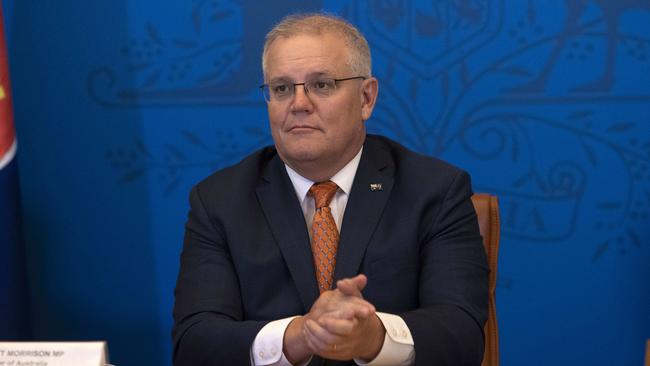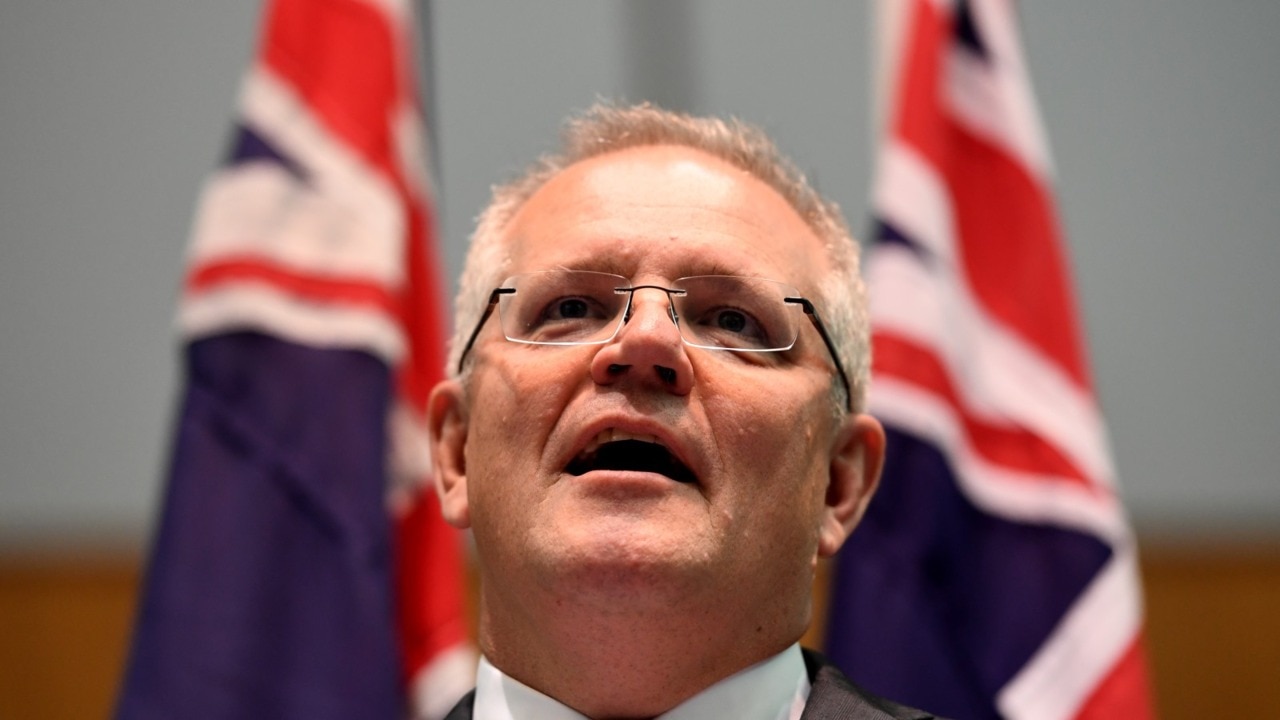Coronavirus: CSL vaccine plant in Morrison government’s post-pandemic manufacturing strategy
Southern hemisphere’s largest vaccine manufacturing plant to be built in Australia in a $1.8bn deal.

The largest biotech and vaccine manufacturing plant in the southern hemisphere will be built in Australia under a $1.8bn deal to provide rapid response to future pandemics and provide the nation’s first mass-scale sovereign capability to defend against global health security threats.
An agreement between the federal government and pharmaceutical giant CSL, to be announced on Monday, is a major part of the government’s post-pandemic manufacturing strategy, and is expected to create 1300 biotech jobs.
The plant, to be built in Melbourne, will deliver the first population-wide pandemic and seasonal flu vaccines for Australians, quarantining the nation from global supply chain shortages or queues.
The facility will also produce the world’s only vaccine against Q fever and a range of lifesaving antivenoms.
Scott Morrison said the new complex would be the most sophisticated plant of its kind for the manufacture of influenza vaccination and future pandemic vaccines in the southern hemisphere and the only one to use cell-based technology to provide high-speed production capability.
It will be underwritten through an $800m construction investment by CSL subsidiary Seqirus — and a $1bn contract commitment by the commonwealth to purchase all future vaccinations for the next 12 years.
The government said that, without the agreement, Australia risked the company moving offshore to build new facilities, requiring future vaccines to be sourced overseas and putting the nation’s health security at risk.
“Keeping Australians safe is my number one priority and while we are rightly focused on both the health and economic challenges of COVID-19, we must also guard against future threats,” the Prime Minister said.
“This agreement cements Australia’s long-term sovereign medical capabilities, giving us the ability to develop vaccines when we need them.
“Just as major defence equipment must be ordered well in advance, this is an investment in our national health security against future pandemics.”
Australian based biotech company CSL is currently creating manufacturing capability in its facility for the local production of the AstraZeneca COVID-19 vaccine and will soon begin production of the University of Queensland vaccine.
But Pfizer’s mRNA vaccine, one of the most promising, cannot be manufactured in Australia, with doses for five million people expected to be available from March to be imported.
The new plant, to be constructed and operated by Seqirus, will take on the capability for rapid manufacture of future pandemic vaccines.
The new production facility would be operational by 2026.

Health Minister Greg Hunt said the facility would secure Australia’s “long-term supply of critical health products including pandemic influenza vaccines and lifesaving antivenoms”.
“The $1bn agreement between the Morrison government and Seqirus also provides the ability to rapidly manufacture vaccines when responding to health pandemics in the future,” he said.
The construction of the facility which will commence next year would also provide 520 construction jobs.
“This new facility will guarantee Australian health security against pandemic influenza for the next two decades,” Mr Hunt said.
“This is a major milestone, ensuring that Australia can mass produce vaccines against future flu pandemics, as well as continuing onshore production of seasonal flu vaccines, Q fever vaccines and antivenoms.
“Without this historic agreement, the nation would need to source these critical medical products from overseas.”
The new plant and the $1bn contract guarantee would replace an existing agreement between the federal government and Seqirus — which is due to expire in 2024-25 — and replace its existing facility which was due to be wound down due to its age.
CSL’s chief executive Paul Perreault said: “Cell-based influenza vaccine technology offers many advantages over the existing process including being more scalable and offering faster production — particularly important in the case of influenza pandemics.”
The announcement follows an agreement in which Australia will join the UK, Canada, Switzerland, and Singapore in a new regulatory bloc for COVID-19 vaccines and therapies. Mr Hunt said the five-nation agreement would give Australia access to research and regulatory information from like-minded countries.
“All of that will help make sure that we have better safety data and earlier safety and effectiveness data,” he said.
The government has four separate agreements with drug-makers for the supply of COVID-19 vaccines, which will deliver shots to Australians and regional partners if they clear safety and approval hurdles.
The agreements, worth more than $3.3bn, include deals to procure 30 million doses of the Oxford University-developed AstraZeneca vaccine, and 40 million doses of the Novovax vaccine candidate. Ten million doses of Pfizer‘s mRNA-based candidate will be available to Australians, if it proves successful, while the government is has also invested in the University of Queensland’s vaccine candidate with CSL.








To join the conversation, please log in. Don't have an account? Register
Join the conversation, you are commenting as Logout